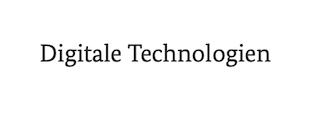Funding
Funding development in the “ICT for Electric Mobility” technology programme
Modern information and communication technology (ICT) plays a decisive role in electric mobility. It’s responsible for more than 80 per cent of all innovations in vehicles. Software, for instance, controls all key functions in an electric vehicle and is increasingly replacing control devices and mechanical components. Furthermore, ICT represents the most important link to electricity and transport infrastructures: amongst other things, ICT controls all charging processes, ensures that electricity grids are not overloaded and lays the foundation for autonomous, networked mobility solutions as well as for new business models in the “sharing economy”. In short, ICT forms the basis for a functioning overall electric mobility system. In five funding rounds since 2009, the “ICT for Electric Mobility” technology programme initiated by the German Federal Ministry for Economic Affairs and Climate Action (BMWK) has been supporting innovative projects that use information and communication technologies to design smart mobility applications.
The 5th round of funding, the Funding Guidelines technology competition “ICT for Electric Mobility – Economical Deployment and Infrastructure of Commercial Electric Vehicles” (call for proposals in German) came into force on 1 January 2022. The BMWK will accept new project proposals for the “ICT for Electric Mobility” technology programme every year up until 15 September. The focus here is on ICT-based system approaches and economically viable applications for linking commercial electric mobility with advanced energy, logistics and real estate infrastructures. This involves, for example, developing and testing grid-compatible charging possibilities for owners and tenants without their own parking space in large housing blocks and neighbourhoods, coupling commercial electric vehicle fleets (bidirectionally) with the energy management systems of industrial and commercial businesses and using electric vehicle batteries as buffer storage units. In addition, highly automated/autonomous passenger transport and cargo concepts will be further developed in urban, rural and suburban areas, allowing higher speeds adapted to moving traffic (e.g. as a solution for connectivity to local public transport or to logistics hubs for final distribution over the last mile). Another research focus is on new charging infrastructure solutions specifically for heavy-duty commercial and special electric vehicles, taking account of grid restrictions. ICT-based hydrogen and fuel cell applications in the commercial vehicle segment have been included as a new project topic.
Peter Wüstnienhaus, Head of the “ICT for Electric Mobility” technology programme at the DLR Project Management Agency, emphasises the importance of the 5th round of funding: “The market ramp-up of electric mobility in the passenger car sector has picked up considerable speed in the last two years. In order to also accelerate the propulsion transition in the commercial vehicle sector, we need not only an adequate supply of vehicles and a charging infrastructure appropriate to needs, but also economically viable deployment and operating concepts for commercial electric vehicles.”
Each round of funding in the “ICT for Electric Mobility” technology programme builds on the respective research topics of the previous rounds:
• During the period from 2012 to 2015, the BMWK funded a total of 18 projects under the 2nd round of funding “ICT for Electric Mobility II: Smart Car – Smart Grid – Smart Traffic” technology programme (website in German). The aim was to develop new ideas and technologies for interaction between smart vehicle systems in the electric car (Smart Car), smart power supply (Smart Grid) and smart mobility concepts (Smart Traffic) based on information and communication technology. Around 100 enterprises and scientific institutions were involved in the projects. The overall volume of funding was in the region of 80 million euros. If the funding provided by the partners is also taken into consideration, the total investment amounted to about 130 million euros.
• During the period from 2016 to 2022, under the 3rd found of funding “ICT for Electric Mobility III: Integration of Commercial Electric Vehicles into Logistics, Energy and Mobility Infrastructures” technology programme (PDF in German), the BMWK supported research projects that focused on the use of electric mobility in commercial contexts. A total of 21 pilot projects were supported, in which holistic solution concepts and exemplary system solutions were developed while integrating technologies, services and business models. The objective of this high-priority funding programme running from 2016 to 2022 was to develop ICT-based innovations in the field of vehicle technology, commercial fleet and logistics concepts and charging, communications and platform technologies, to identify economically worthwhile applications for electric mobility in the commercial vehicle segment and to help them achieve a breakthrough. It was not the development of electric vehicles and drivetrains that was at the centre of attention but rather their integration into ICT-based holistic logistics, energy management and mobility approaches. Another key focus of the research was on integrating electric vehicles into smart energy and transport networks, hand in hand with the development of suitable technologies and services backed up by field trials.
• The 4th round of funding – ICT for Electric Mobility: Smart Applications for Mobility, Logistics and Energy” (2020 to 2025) (PDF in German) – is focusing on the development and testing of open, ICT-based approaches for an optimised integration of (commercial) electric mobility into smart mobility, logistics and energy infrastructures and business environments. Amongst other things, the 24 funded projects are researching ICT innovations in the fields of vehicle technology, commercial fleet and logistics concepts and charging, communications and platform technologies. A key focus of the research is on integrating electric vehicles into smart energy and transport networks. In the course of this work, highly automated/autonomous and AI-based electric mobility applications are also being tested. Beyond this, funding is being provided to develop and test innovative mobility solutions for rural areas as well as grid-compatible charging possibilities for large housing blocks and neighbourhoods.
